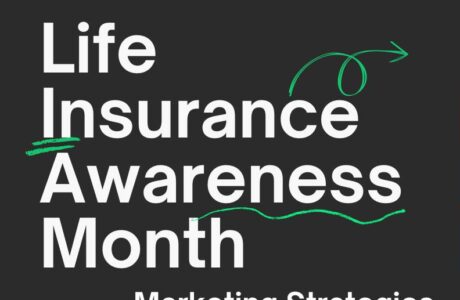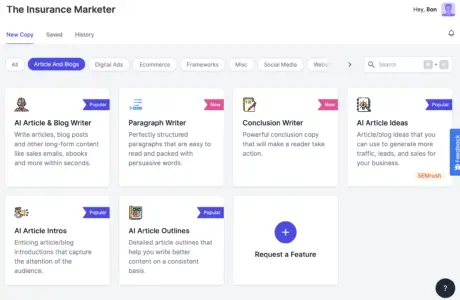Auto insurance seems like a necessary evil to many of us. We don’t want to spend money on it – and yet, if we’re going to drive a car, we have to have auto insurance in place.
It’s time to dispel some of the myths and learn the important facts about auto insurance so you can feel confident about your coverage. The price of your car insurance premium is mostly determined by where you live, and what kind of car you drive. The make, model, and year of your car also factor in.
But there are other factors, too, including your age, marital status, and how many miles you drive each year. Here are 20 auto insurance facts that will help everyone to make smarter decisions.
1. Companies Can Non-Renew Your Policy
Sidle Insurance explains insurance companies are allowed to non-renew your policy. What this means is they can decide to cancel your policy to prevent it from renewing. While you’re able to ride out the remainder, you’ll have to get another insurance company when the term is completed.
2. Minor Accidents Can Sky-Rocket the Premium
Whether you rear-end someone or bump into a pole, every accident counts. If you hit a mailbox once and there’s not much damage, your bill might not go up. However, repeated offenses will eventually hike your premium enough to cover regular issues. In other words, drive safely and pay attention to your car’s surroundings!
3. Male Teenage Have Significantly Higher Prices
Most studies show males have to pay more for insurance policies than females since they’re more likely to get into an accident. The likelihood is increased when they’re teens, which is why the policy is much higher. Consider keeping all family members on the same policy to limit the monthly premium.
4. Your Car’s Make, Model, and Engine Change the Cost
If you drive a brand-new, expensive, high-powered vehicle, you’ll have to pay much more money on the insurance premium. Auto insurance is based on several factors, including how much repairs cost. Since pricey vehicles charge more for maintenance, your policy will be higher.
5. Credit Is Crucial
One of the most influential factors of auto insurance policies is your credit score. If you have poor credit, it’ll hike the price. Unfortunately, it could cause a difference of over $100. Building your credit as quickly as possible will keep your insurance from going too high. You can get a credit check when you renew the policy, too.
6. Driving Records Can Show Life Expectancy
According to Cheap Insurance, people who drive safely and don’t get any tickets or accidents tend to live longer than those who drive recklessly. Even if they don’t have a severe accident while driving, most people who repeatedly crash or drink and drive tend to have a shorter life expectancy.
7. If Your Name Is on the Slip, You’re Charged for Any Accidents
Whether you’re lending your car to a roommate for a short drive to the store or letting your parents borrow your truck for a long move, you’re responsible for any problems along the way. If they get into a crash, you have to pay the bill and deal with possible premium increases.
8. 50% of Your Premium Isn’t for Coverage
That’s right; Half of your monthly bill goes to cover the costs of running the company. They have to pay employees, air conditioning, website maintenance, and so on. The other half is placed in a pool for insurance claims. Your money might go to pay someone else’s claim if you never have to use it.
9. Not Every State Requires Driver’s Insurance
It might seem convenient that you don’t have to carry auto insurance, but you’ll have to pay thousands of dollars for any accidents. Furthermore, if you have insurance and the other driver doesn’t, but they leave the scene, you’re left with the payment.
10. Lifestyle Changes Affect Your Auto Insurance Bill
Moving to a new location, driving further on a work commute, or spending more time cruising on road trips all affect your monthly premium. Let your insurance company know so they can set the correct amount. Failure to do so will result in penalties, including price hikes and non-renewals.
11. Family Can Ruin Your Insurance Premium
If you let your family members drive your vehicle (including when you’re teaching them how to drive), you’re responsible for all damages. Even if they get into a minor collision, there’s a chance you’ll have to foot the bill and deal with monthly price increases.
12. Loaning Your Car Can Cost You Thousands
Never let someone borrow your vehicle if they’re not on the auto insurance policy. As you’ve read in a couple of previous sections, everything done to the vehicle is your responsibility. Auto insurance companies insure the driver, not everyone who drives the car.
13. Many Personal Delivery Vehicles Aren’t Covered
Insure states you might have trouble finding coverage for Uber, Lyft, DoorDash, and other delivery vehicles. Even if they double as your personal vehicle, they have many more miles and hours on the road. If you get a policy, you’ll have to pay a higher premium.
14. Failure To Get Insurance Is Punishable by Law
While there are correctly two states that don’t require auto insurance, you’ll be in deep trouble if you’re caught driving without it anywhere else. Auto insurance saves your wallet, car, and other drivers. It’s a matter of legal responsibility.
15. Your Marital Status Affect the Premium
If you’re married, you don’t have to pay as much as single people. The reason this fact is scary is everyone else has to pay more money! Even if you’re in a relationship out of marriage, you’ll have a slightly higher bill.
16. Where You Live Matters
Living in a low-traffic rural area costs less than living in a busy city. There’s a higher chance of an accident, so companies charge more money. However, small cities often don’t have much of a premium increase.
17. Customizing Your Premium Could Hurt Your Wallet
If you don’t know the difference between different coverages, it’s best to leave it to the pros. Subtracting too much can cut your monthly costs, but you’ll pay a boatload of cash if you get in an accident. Try choosing a preset policy.
18. Personal Coverage Doesn’t Include Business Vehicles
Whether you own the company or work for an employer, your business vehicle isn’t covered as a personal vehicle. Let your insurance company know so they can add it. Large businesses often have preset insurance, though.
19. Payment Gaps Increase Insurance Costs
If you’re not driving for six to twelve months, it might be tempting to skip insurance payments. This mistake could cost you hundreds of dollars because auto insurance companies don’t like seeing a gap in insurance history. It shows you haven’t been on the road for a while. Make sure to purchase car insurance before your current policy is canceled.
20. Auto Insurance Surfing Is a Poor Practice
Never jump from one company to another too often. You won’t reap the benefit of long-term commitments that lower your payments. Some people skip from one to another and think they’re saving money, but it costs them much more in the long run!
Background photo created by kues1 – www.freepik.com




